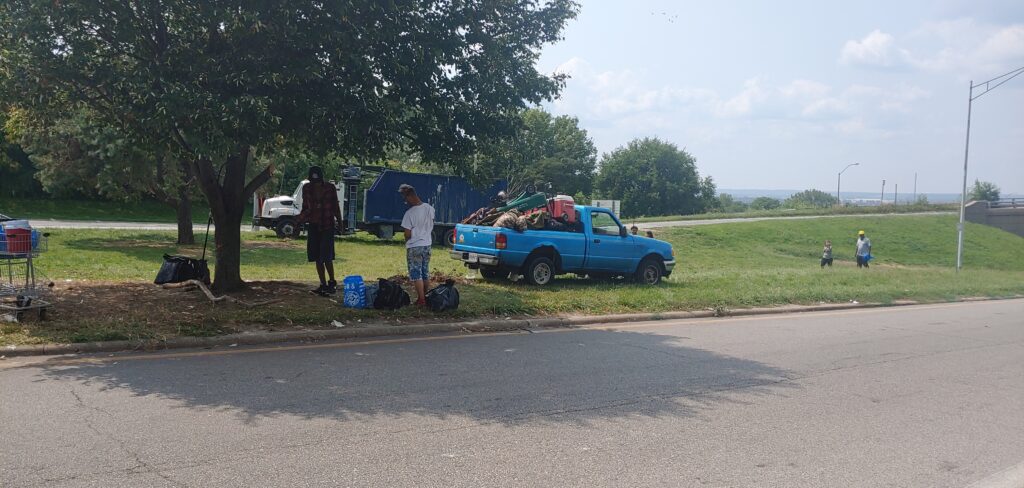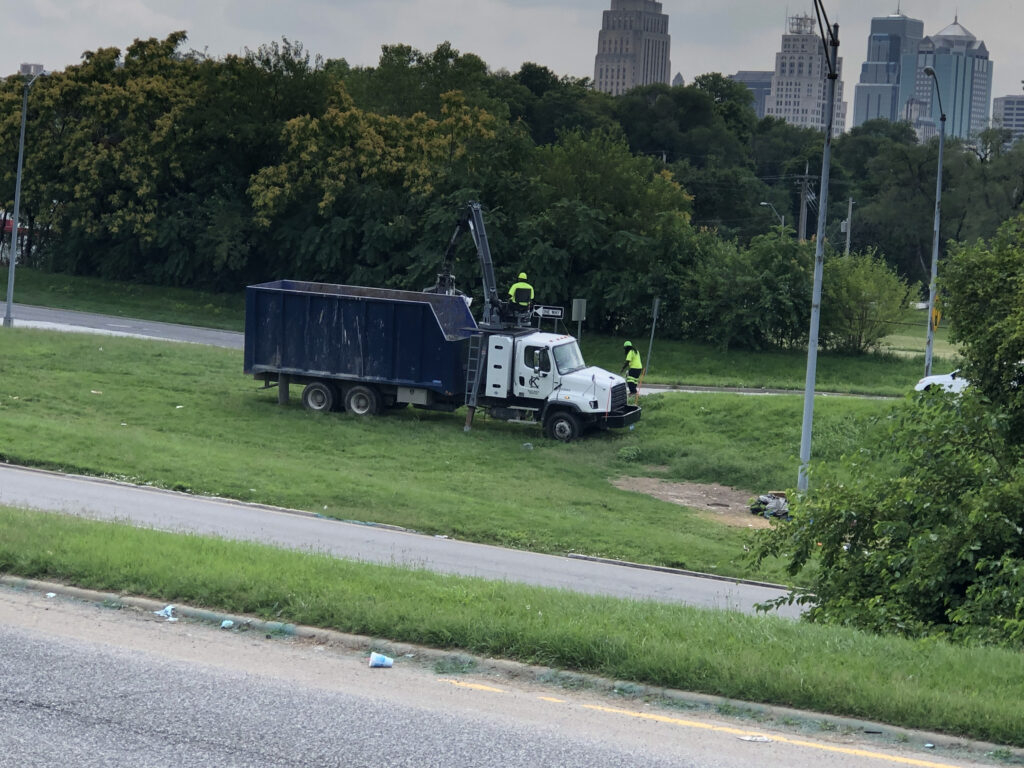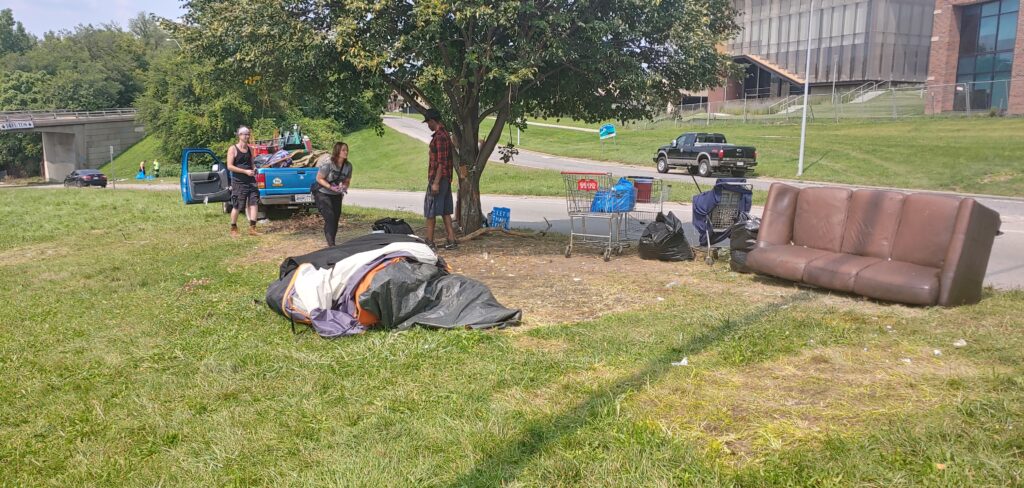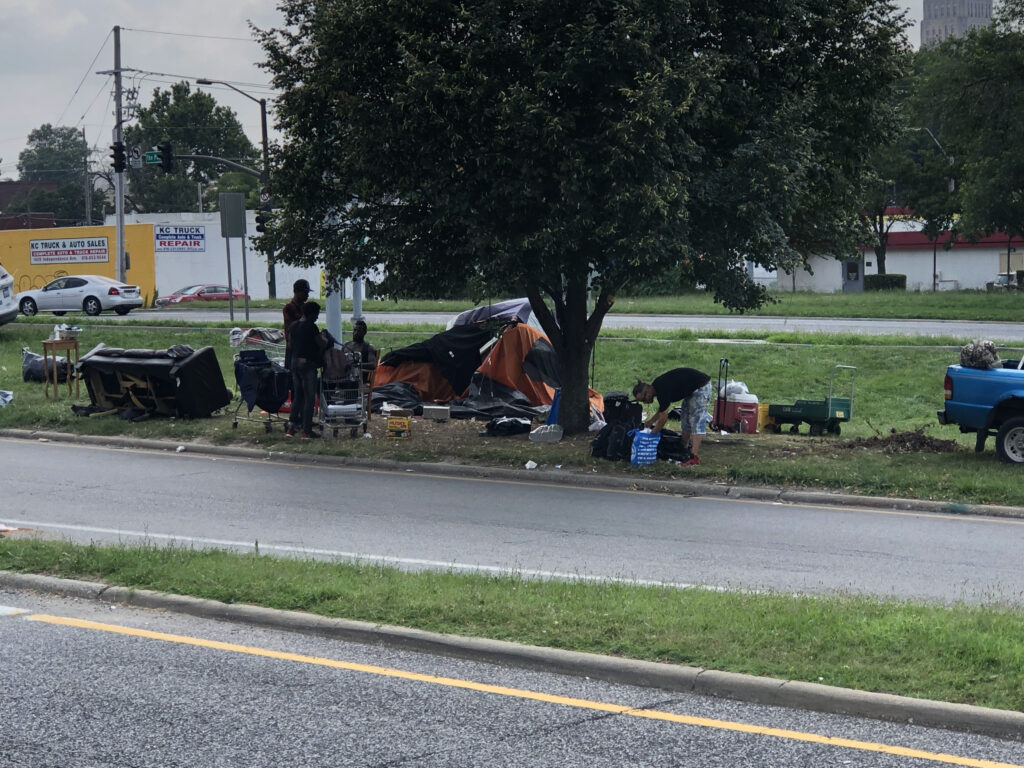
By Lexi Garcia, Tatum Goetting, Corbin Smith
On July 20, the City of Kansas City’s Neighborhoods and Housing Services Department conducted a sweep at the intersection of Independence Avenue and The Paseo Boulevard to remove solid waste left by individuals camping there.
The unhoused individuals formerly living at the median in between the exit and on-ramps for Interstate 29 were told to leave.
One individual, Lightning Todd, said the only certainty he has is that he’ll be sleeping in his tent. Todd said he wants the City and its people to help unhoused people find shelter.
“Just accept them for who they are and try to help them,” Todd said about unsheltered individuals. “Don’t kick them off for no reason. Just tell them, ‘Hey, there’s possible dangers that are crucial to your well-being.’”
The City came through the intersection after receiving multiple reports regarding people wandering into the street and nearly getting hit by oncoming traffic.

This includes a letter to Kansas City Mayor Quinton Lucas, City Manager Brian Platt, MoDOT Director Patrick McKenna and Deputy Director and Chief Engineer Ed Hassinger from President and CEO of Kansas City University Dr. Marc Hahn, who describes the situation as an “existential threat to KCU.”
“These encampments pose a clear and present danger to KCU’s students, 700 of which are returning to our campus starting Monday,” Hahn wrote in his letter July 9. “We fear that the existing tents are simply a toehold for what will inevitably become a greater problem for our neighborhood.”

Louis Cummings, the City’s Area Superintendent, led a team of City employees Tuesday to move the camp out of the intersection. Cummings said the City was called after multiple complaints about health and safety around the area.
“[The City doesn’t] want them on open right-of-ways or where there is a lot of public traffic going on,” Cummings said. “There’s violence that happens in these camps. If they’re somewhere where they aren’t posing any danger, then we won’t do anything about it.”
The ultimate goal, Cummings said, is to get individuals seeking shelter the help they need. He pointed to a lack of hygiene being a problem that attracts safety hazards to the individuals themself as well as their surroundings. It is a “problem waiting to happen” by allowing unhoused individuals to camp at the intersection, Cummings said.

Volunteers associated with the Midwest Homeless Collective helped relocate individuals to an undisclosed location, but refused to comment on where they would be moved to.
Ordinances on assistance for unhoused Kansas Citians are being discussed in the July 21 Finance, Governance and Public Safety Committee, including a MergingKC’s Verge community with Pallet homes, a request for proposals for an assessment of vacant properties that can be converted into housing, and a $1.7 million boost to existing social services and shelters.
















